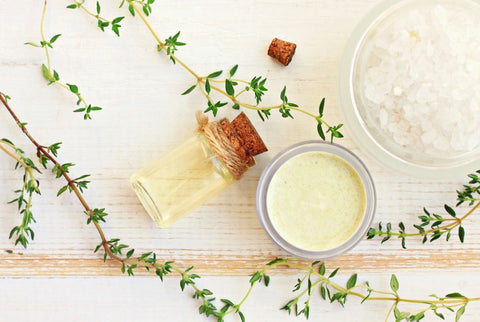Your Mouth: A Gateway to Whole-Body Health
Most of us brush our teeth daily — but are we doing enough to protect not only our mouths but our overall health? Typically, we hear that brushing and flossing twice a day is the gold standard for oral care. However, more research is shedding light on the deeper connection between oral health and the rest of the body, underscoring why maintaining a clean, balanced mouth can prevent not just tooth decay but even chronic diseases.
A healthy mouth is home to both "good and bad bacteria." When bad bacteria enter the bloodstream, they can lead to inflammation, which contributes to health issues beyond the mouth. For example, people with "gum disease" are "two to three times" more likely to experience cardiovascular problems like heart attacks or strokes, as confirmed by Harvard Medical School. Gum disease results from bacterial plaque build-up, which causes inflammation in the gums, while cardiovascular disease involves plaque build-up in the arteries. Reducing inflammation and bacteria in the mouth is essential for your long-term health.
Oral Care Beyond Brushing — What Else Can You Do?
While brushing and flossing are essential steps, certain ingredients in popular toothpastes raise questions. For instance, research from the Zhang Lab at the University of Massachusetts Amherst suggests that triclosan — an ingredient in some toothpastes — may increase gut inflammation and heighten colon cancer risks. Another common ingredient, sodium lauryl sulfate (SLS), helps toothpaste foam but can irritate sensitive tissues, particularly for those prone to mouth ulcers. Additionally, gluten, which can be used as a thickening agent, poses a risk for people with Coeliac disease. Unless a toothpaste brand explicitly states it's gluten-free, it’s wise to avoid it. Find a list of gluten-free toothpastes here.

Steps to Reduce Chemical Exposure and Support Natural Oral Health
To truly boost your oral health, consider incorporating a few alternative practices to keep bad bacteria at bay. Below are some effective, holistic ways to detoxify and remineralise your mouth.
Remineralisation: A Natural Shield for Your Teeth
Since the 1930s, studies have highlighted that you can actually remineralise your teeth to reverse early decay, saving yourself from fillings down the line. A study by Sydney University in 2015 found that combining a balanced diet low in refined sugars with remineralising agents like tooth powder can restore crucial minerals like calcium and phosphate to your teeth. In addition to reducing decay, remineralisation helps alleviate tooth sensitivity. In a 2013 clinical trial, a tooth powder composed of calcium carbonate and essential oils was found to be more effective than traditional toothpaste at controlling plaque, gingivitis, and surface stains. You can make remineralising tooth powder at home or buy it online. Another great addition is dental probiotics that help keep a balanced, protective bacterial environment in the mouth. Probiotics are available for children too and support respiratory health as well.
Avoiding Mercury Exposure from Amalgam Fillings
Amalgam fillings, used for more than 150 years, are made of 50% mercury. According to the International Academy of Oral Medicine and Toxicology (IAOMT), mercury vapor from these fillings can be absorbed by the body and potentially lead to mercury toxicity. For alternatives like "composite resin, glass ionomer, or gold, consult with your dentist. If you're dedicated to protecting your oral health, consider these options and other preventive measures below.
Holistic Practices for a Cleaner, Healthier Mouth
Ready to take your oral care routine to the next level? Here are some methods to support whole-mouth wellness and detoxify regularly:
Tongue Scraping
A stainless steel tongue scraper removes bacteria from your tongue, which is a prime area for plaque accumulation. Using it twice a day is a quick way to improve oral hygiene instantly, more effectively than a toothbrush.
Choosing Organic Toothpaste
Since commercial toothpaste often contains potentially harmful ingredients, try opting for a natural toothpaste — or make your own. Here’s our go-to recipe for a DIY remineralising toothpaste and DIY toothpowder.
Oil Pulling
This ancient Ayurvedic practice deep-cleans teeth and can help prevent cavities. Simply swish a tablespoon of oil (such as coconut, sesame, or sunflower oil) in your mouth for 10–20 minutes. Adding "clove essential oil" enhances tooth-whitening and germ-fighting benefits. Afterward, spit the oil and rinse your mouth thoroughly.

Ionic Toothbrushes
Using an ionic toothbrush can be a powerful way to reduce plaque accumulation. These brushes work similarly to traditional ones but offer an extra benefit: they help neutralize and repel plaque from teeth surfaces.
DIY Summertime Remineralising Toothpaste Recipe
Ingredients
- 5 parts "Calcium powder"
- 2 parts "Baking Soda"
- 3–5 parts "Coconut Oil"
- Optional:
- 3 parts "Xylitol Powder" (reduces bitterness)
- "Clove essential oil" for natural whitening and a hint of spice
Directions: Combine ingredients in a glass bowl, then store in a jar. Use a small amount daily for added remineralisation benefits.
With these holistic tips, you can transform your oral care routine to protect not only your teeth but also your entire body.
Get the original recipe here.
Further Reading
- A few more amazing ways to detox your mouth: http://thechalkboardmag.com/detox-your-mouth-9-holistic-oral-health-treatments
- Why you should get on the tongue scraping bandwagon: http://thechalkboardmag.com/simplest-health-tip-ever-why-you-should-be-tongue-scraping
- In-depth read on the toxins in toothpaste and how they affect our health: http://accidental-greenie.blogspot.hk/2017/03/1.html
- Make your own tooth powder: https://it-takes-time.com/2015/07/14/diy-tooth-powder/
- Help your teeth fight cavities with this brilliant DIY remineralising toothpaste recipe: https://wellnessmama.com/2500/remineralizing-toothpaste/


